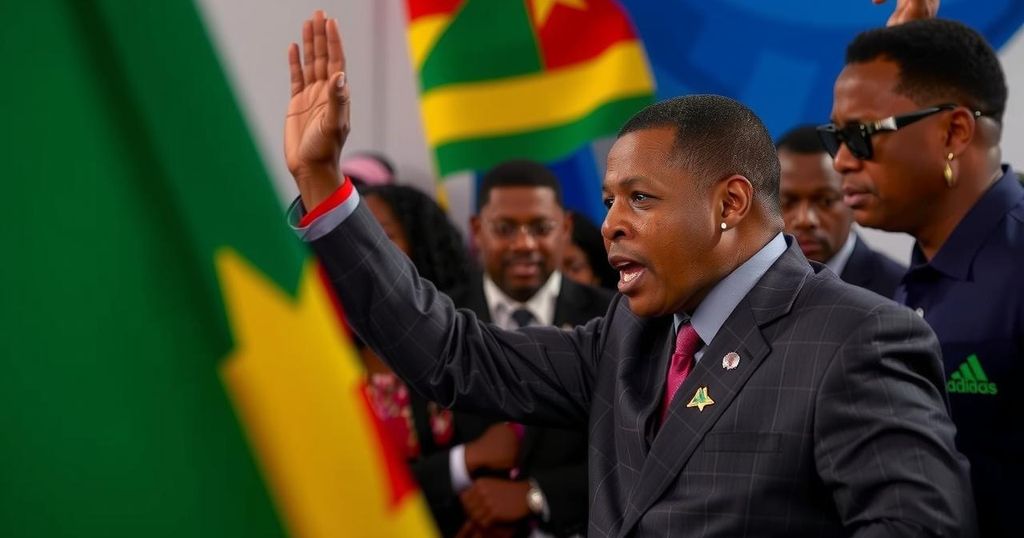Mozambique Ruling Party Declared Winner of Election Amidst Violence and Allegations of Fraud
Daniel Chapo of Mozambique’s ruling Frelimo party has won the presidential election with 70.7% of the vote amidst significant opposition allegations of electoral fraud and the violent deaths of opposition figures. Venâncio Mondlane, appealing to young voters, secured 20.3% of the vote but calls for peaceful protest in response to the controversial electoral process and allegations of fabricated voter registrations mar the elections.
The ruling party of Mozambique, Frelimo, has decisively secured victory in the recent presidential elections, with its candidate Daniel Chapo garnering 70.7% of the votes, thus surpassing the required 50% threshold to forego a second electoral round. This outcome has occurred against a backdrop of violence, including the unsettling killings of two opposition figures, Elvino Dias, an attorney preparing to contest the election results, and Paulo Guambe of the Podemos party, which endorsed opposition candidate Venâncio Mondlane. Mondlane, a candidate who resonated with the youth demographic, received 20.3% of the total votes. The electoral process has faced significant scrutiny, as prior to the October 9 voting, civil society organizations accused Frelimo of fabricating approximately 900,000 voter registrations from an electorate of 17 million citizens. Observers from both local and international spheres have raised allegations of electoral fraud, including ballot stuffing and manipulations within the vote-counting process. Mozambique, which continues to grapple with economic hardships in the wake of corrupt governmental practices revealed in 2016, is witnessing rising tensions as Mondlane calls for peaceful protests against the electoral outcomes. Young voters are particularly drawn to his message of change, as he asserts, “The time has come for the people to take power and say that we now want to change the history of this country. There won’t be enough bullets for everyone, there won’t be teargas for everyone, there won’t be enough armoured vehicles.” Meanwhile, human rights advocates, such as Zenaida Machado of Human Rights Watch, emphasize the necessity for authorities to uphold the right to peaceful assembly and address reports of violence perpetuated against demonstrators and journalists covering the protests.
Mozambique has been under the rule of the Frelimo party for nearly five decades, during which numerous allegations of electoral fraud and corruption have emerged. The recent elections have been marred by violence, particularly the killings of opposition figures, which raises concerns about the safety of political dissenters. With a demographic skewed towards a young population, the opposition, particularly in the form of Venâncio Mondlane, has sought to mobilize this section of society for political change amidst allegations of substantial voter manipulation. The country is still reeling from previous economic disasters, further complicating the political landscape.
In conclusion, while Frelimo celebrates a sweeping electoral victory, the processes that led to this outcome are marred by serious allegations of fraud and violence. The deaths of opposition members and claims of deflated voting figures underscore the potential volatility of Mozambique’s political environment as calls for peaceful protests highlight the public’s desire for change. As the government navigates these challenges, the importance of safeguarding human rights and fair electoral practices will be crucial for the country’s future stability.
Original Source: www.theguardian.com




Post Comment